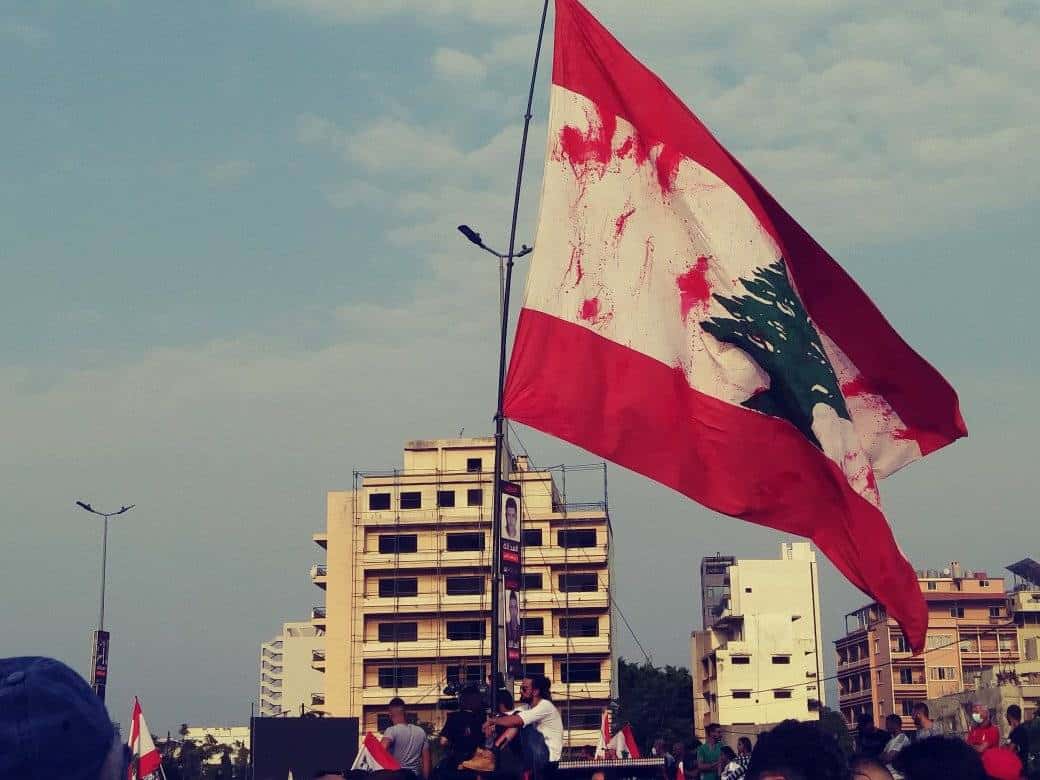Currently, Lebanon is facing a variety of economic, political, and humanitarian crises. Banks have been held up by gunpoint as people demand the right to withdraw their own money. On September 22nd, a boat capsized in the Mediterranean sea causing the death of more than 90 people trying to flee the dire economic situation.
Imagine looking over Beirut. With one eye, you see high-rise buildings and verdant terraces of flowers and vines. You see the sun setting over the Mediterranean. You see cafés filled with people discussing art and politics and culture. You see churches and mosques built side-by-side. With the other eye, you see women begging at street corners, rocking their emaciated children. You see luxury nightclubs next to bombed-out high-rises. And you see piles of trash along endless lines of parked cars, because there is little gasoline and people cannot afford it anyway.
You have your Lebanon and I have mine. / You have your Lebanon with her problems, and I have my Lebanon with her beauty. So writes the Lebanese-American author Gibran Khalil Gibran. These are words I read spray painted over a derelict building on Gemmayze, a residential neighborhood that has emerged as one of Beirut’s trendiest districts. Gemmayze is a place where you can sneak into a church and pray the rosary; chances are there is already a group doing just that. It is also a place where, if you have some fresh US dollars, you can get Japanese sushi or New York style pizza by the slice. It is also not far from the Port of Beirut, where on August 4, 2020 a large amount of ammonium nitrate exploded and caused over 200 deaths.
It is August 4th of this year, and I am in Gemmayze with two of my university classmates as we hunt for an open restaurant. We are coming from a protest, where victims and their families were demanding justice. We heard the names being read off, each utterance like the knell of a bell as protesters shouted slogans and demanded accountability from their government. Some people carried around small nooses. Some people are still carrying them. Others cover themselves in the red and white flag of Lebanon, the symbol of a country both loved and hated. Because, as I learned, people were protesting more than one day; they were protesting their existence.
As the Lebanese economy fully unraveled in 2019, people lost their savings, their way of life, everything. In a matter of years, the Lebanese lira lost more than 95% of its value. And this explains another of my encounters at Gemmayze. It is night, the last night of my two months in Beirut. There is a man selling gum. As he explains to us, he buys the whole set of gum for a certain money and tries to make a small profit in order to feed his family, his young daughter. But no one buys the gum. Most people ignore him. Maybe he’s lying. Who can say. But on this night, my Jesuit brother stops, and we spark up a conversation in broken Arabic. He is so grateful for our conversation that he refuses our petty donation. This a moment of consolation for me, feeling that somewhere in this strange interaction between two privileged Americans and this father God is active and speaking.
We are still walking down Gemmayze. As you walk, you eventually reach Mar Mikhail and Bourj Hammoud, parts of the city which have traditionally been the home of Armenians who settled here after fleeing Turkey. More recently, however, this area has seen a rise in Syrians due to the ongoing Syrian civil war. Even as I think of the Syrians, the Armenians, and the conflicts in their traditional homelands, I am reminded of the war in Lebanon, which ravaged the country between 1975 and 1990. As I am walking home from one of our mishwars, an outing or field trip, one of my classmates points out the bridge connecting Bourj Hammoud and Mar Mikhail.
“The Armenians were neutral in the war,” she says, “but their community was separated by this bridge. Eventually they were able to broker a ceasefire, which lasted for a few hours each day. So, people were able to cross. When the ceasefire ended each night, the snipers would shoot the metal on this bridge as a warning not to cross until the next day.”
I ask my classmate how she knows so much, and she tells me that she is working on a memory project to document the experiences of those who lived through the war. Maybe in a small way, people hearing these stories can begin to heal from the generational trauma that few politicians want to address.
Gemmayze also has cafes and I go to one now, because on this evening the electric generator in our building is not working, and I need to finish some homework. Because of fuel shortages and other economic issues, the government power plants only provide about two hours of electricity a day. This fact may surprise you as you look out towards the wealthier districts of the city and see how many buildings are lit up. Lights are kept on by private generators that run on diesel and fill the city with smog. While some buildings can afford the fuel, other people are not so lucky. Not only can they not turn their lights on at night, they also have no means of refrigeration.
Hunger is an issue for many here. But one place you won’t go hungry is the Jesuit church, Saint Joseph. This parish is unique, because it serves a variety of English-speaking foreign workers mainly from the Philippines, Sri Lanka, and South Sudan. It is Sunday, and as I am introducing myself, I am ushered upstairs and subjected to a hospitality that I can’t refuse. Literally. The group of women have pulled their money together to create a variety of delicious dishes in a way that one can hardly imagine. And, the Church is not only a place for dedicated Christians. Embracing the pluralistic nature of the country, the Church houses and supports a Buddhist community that can often be seen playing cricket in the Church parking lot. Meanwhile, newly married Muslim couples in their wedding garb have been known to stop by Saint Joseph, which still has a stained glass window blown out from the explosion two years ago, in order to take wedding pictures.
This is my Lebanon. Studying here has been a highlight of my career as both a graduate student and a Jesuit studying for the priesthood. While I have failed to document the experiences of exploring ancient Roman ruins or praying in mountain monasteries, more important to me were the day-to-day moments of suffering and the grace needed and the joy.


